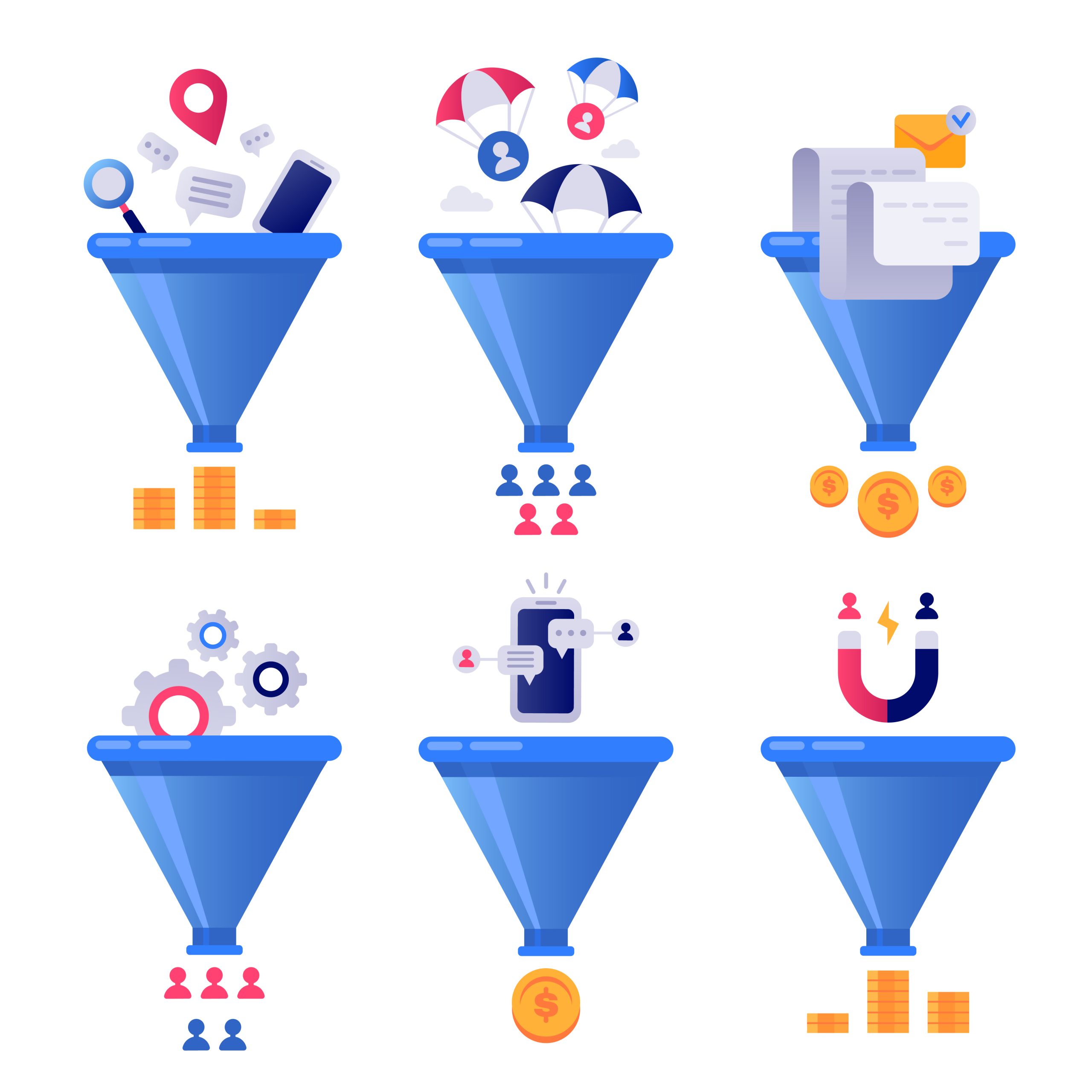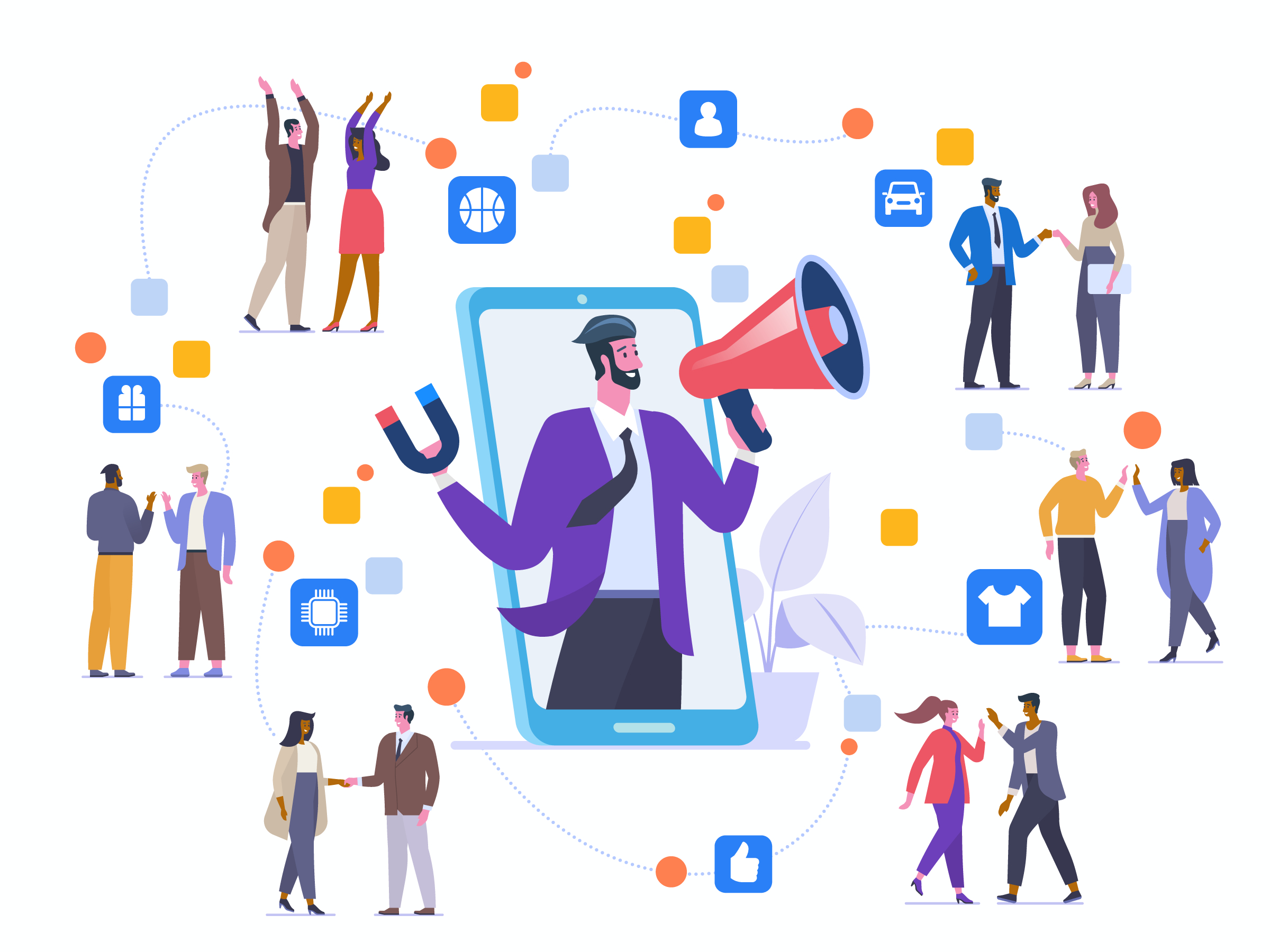Affiliate Marketing Trends to Capitalise On
03-10-2025

The Future of Affiliate Marketing: Trends to Make Money
You don’t have a crystal ball to predict the future of affiliate marketing, but you can still be among the first to capitalise on emerging affiliate marketing trends. As a first-mover, you’ll have every chance to build a six-figure business before the competition catches up.
Here are the most potentially beneficial affiliate marketing trends:
- AI-driven marketing
- Social media and influencer marketing
- Complex attribution models
- Retention marketing
- Chatbot & Metaverse marketing
Without further ado, let’s dissect these and some more, and how you can use them to your advantage.
AI-Driven Affiliate Marketing
With marketing AI projected to increase by over 700% by 2028, there’s no doubt more affiliates and advertisers will add new AI solutions to their tech stack:
- Virtual influencers: You can already generate human-like avatars for video content, but it’s only the beginning. In a few years, you may be able to set up a system that creates content and communicates with your audience autonomously, while being indistinguishable from a human content creator.
- Link placement: You can use AI to generate hundreds of answers to popular questions on platforms like Quora, placing affiliate links that reinforce the answers.
- AI podcasts: AI voice generators can create podcasts and targeted audio ads in any language, tailoring them to specific streaming platforms and audiences.
It’s almost a given that the future of affiliate marketing is AI-driven, with first movers being the biggest beneficiaries of new technologies. Likewise, affiliates already have more time for strategic decisions, and they may have more of it in the near future.
Growing Affiliate Marketing Spend
Spend-wise, affiliate marketing is expected to grow from $9.65 billion in 2023 to over $16 billion by 2028, with the main contributing factors being an increased role of digital commerce, influencers, and AI that automates affiliate marketing across the board.
| Around 28% decision-making marketers from the United States and Europe believe that a constant stream of new partners is the biggest advantage of affiliate marketing. |
While spending more, affiliates and advertisers are also seeking new business connections so they can sell or buy traffic safely. Otherwise, they are forced to use advanced verification and anti-fraud software, spending resources that could’ve been spent more effectively.
Growing Role of Social Media and Influencers
Even now, 53% of marketing and media leaders monitor social media engagement as a major factor in content marketing performance – more important than page views and website engagement. The numbers are likely to grow further as older generations become more comfortable using Facebook, LinkedIn, and Instagram.
➥ Did you know that an average company works with up to 10 influencers?
Advertisers will continue to tap into influencer marketing, especially micro and nano-influencers, who may be more knowledgeable and cost-effective. As an affiliate, you can surely capitalise on it, creating a niche audience around the products you promote.
Complex Attribution Models
When multiple touchpoints from different publishers contribute to the same sale, even though only the last (one) publisher receives the commission, it’s crucial to know how the referral behaved across touchpoints. Then you can optimise your lead generation or acquisition models, focusing on the right type of campaign and traffic sources.
For example, if the user sees your ad for the first time on Publisher A’s website, then disengages, and later converts through Publisher B, it’s possible that by the time they reach Publisher B, they’re already aware of the promoted product. So, even though Publisher A receives no commission, they were still a valuable touchpoint in the referral journey.
➥ For 25% of marketers, the ability to control specific marketing outcomes is a unique advantage of affiliate marketing.
Correct attribution in affiliate marketing models where credit is assigned to all publishers requires thorough referral tracking, which paves the way for advanced link tracking software and possibly even more diverse attribution models.
Content Performance Tracking
Over 40% of marketers plan to increase their content spend in both the short term and the long term. However, as an affiliate, not only would you like to know how each of your offers performs, but also how different types of content impact conversions, especially if you earn commission on sales.
➥ Only around 26% of marketers know exactly how their content performs; over 30% of companies struggle to create high-quality content.
In 2025 and beyond, content performance tracking will become data-driven. It will be easier to understand what content resonates with what audience and why. As a result, you’ll be able to create well-targeted, personalized affiliate marketing strategies.
Referral & Affiliate Retention
With affiliate marketing becoming increasingly competitive, brands are not only trying to expand but also to retain existing customers and maximise their lifetime value. For 59% of marketing and media leaders, customer retention rates are among the most impactful revenue measures.
| If you generate loyal customers, not just one-time buyers, you can receive higher rates, performance bonuses, and recurring commissions, as well as advance to higher affiliate tiers. |
In industries such as finance, where sales cycles are longer, more complex, and require extensive nurturing, referral retention is particularly important. It’s no secret that making a sale to an existing client is easier and usually has lower churn rates and higher ROI.

For affiliates, this means you can negotiate higher rates or request recurring commissions, particularly for subscription-based products.
Increased Role of Product Quality
As an affiliate, you should never forget that the product comes first, regardless of the marketing gimmicks you employ. In fact, over 60% of consumers in the UK consider high-quality products to be a primary factor in brand loyalty. In contrast, deceptive advertising is believed to be a major negative factor for around one-third of customers.
Marketing tricks may have already gone too far for consumers to even pay attention to them. It’s not out of the question that referrals will request more information about the product rather than mostly looking for discounts and bonuses.
Advanced Paid Advertising Strategies
It may take months or even years until you can generate high-quality organic traffic, so you may have to rely on paid traffic first. The rule of thumb is that you should wait 3 to 6 months for your newly published content to reach its peak performance.
➥ Search advertising spending is expected to increase at a rate of 6.5% annually until 2027, reaching approximately $192 billion. By 2029, 61% of the total ad spending is projected to come from mobile.
Basic advertising strategies may no longer be effective. More affiliates are going to use first-party tracking, server-side events, native opt-ins, and UTM setups, as well as other know-hows that go beyond the settings offered by platforms like Google Ads or Meta Ads.

Predictive Modelling
Gone are the days when you could only test your campaigns live – today, analytical algorithms can predict future outcomes based on the accumulated data and historical patterns.
Both affiliates and advertisers will benefit immensely from predictive modelling, generating dozens and hundreds of campaigns to go with the winners. This way, affiliate marketing will become more cost-effective and transparent.
Voice Search Optimisation
With over two-thirds of consumers using voice assistants for shopping, voice search optimisation might be one of the most undervalued affiliate marketing trends.
Devices like Google Home and Amazon Echo already enable on-the-go voice search, so you might want to optimise your content for conversational, long-tail queries.
ChatBot Affiliate Marketing
Advanced AI chatbots can do almost everything human marketers do, including personalised, context-based answers, guidance, and support. For example, an AI chatbot on a finance website can provide a personalised plan recommendation and a link to the best local broker.
Likewise, AI call agents are taking the caller experience to the next level by processing voice inputs in real-time and issuing contextualised responses – just like human operators do. The best part is that you can train your AI agents to handle specific conversation lines and provide in-depth answers.
Omnichannel Marketing Coverage
In industries like finance, real estate, and insurance, you usually need a comprehensive marketing funnel that extends beyond a single blog post or YouTube video. In most cases, you should ensure omnichannel marketing coverage, not just one touchpoint.
For you as an affiliate, omnichannel marketing means:
- Fewer, but higher quality offers:. Instead of choosing a new offer every time you create content, it may be better to focus on a single or a few key products you can commit to.
- Firsthand experiences with the product:. If you haven’t used the product yourself, you won’t be able to create resonating content, especially considering you’ll need much of it for every touchpoint across the marketing funnel.
Even for larger affiliates that advertise products outside their area of expertise, it may not be as simple as before to convert their name into profits. Eventually, almost all consumers will start using AI assistants to verify information and select the best products tailored to their unique requirements and purchasing history.
AI-Enhanced Marketplaces
Whether buying or selling leads, marketers are increasingly searching for ways to protect themselves from fraud, such as mismatched traffic or advertisers that fail to attribute sales correctly or cannot convert any leads.
On the other hand, as an advertiser, you want to make sure you’re in a marketplace where you can set up granular qualification criteria – the demographics and type of lead you need – and only buy leads and phone calls that match your needs.

Metaverse Affiliate Marketing
Metaverse is one of the most exotic yet promising platforms for affiliates, with some marketing behemoths already reaping benefits from it. For example, Nike has launched SWOOSH, a platform where users can sell virtual sneakers with royalties. L’Oréal, in collaboration with Ready Player Me, has introduced cosmetics to VR.
As with any new affiliate marketing avenue, Metaverse may not be quite cost-effective at first, but you have a brilliant opportunity to capitalise on its growth as a first mover. Virtual collections, AR fittings, and exclusives for digital avatars are soon going to be just as regular purchases as groceries in a supermarket.
Join us as an affiliate or advertiser. For more information, call 01202 122 280 or email us at info@t.uk.

